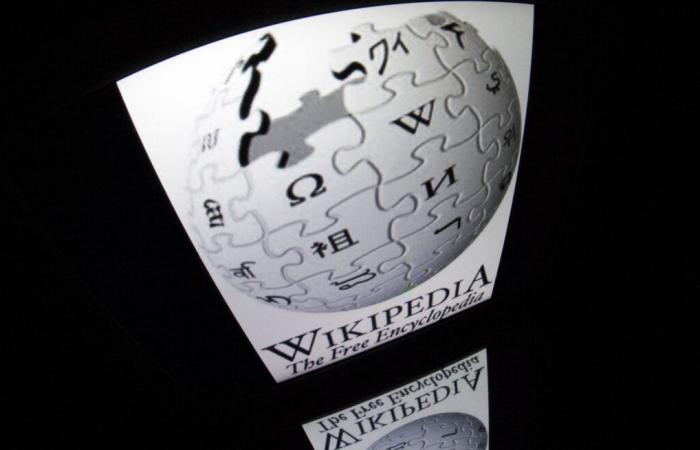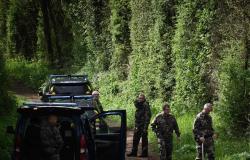Let’s enter Wikipedia by the Acadie Portal. On the imperial online encyclopedia, a portal is a thematic grouping of articles. There are at the moment more than 1810 in French, and the information nebula devoted to Acadian subjects alone has more than 2040 articles. They carry on Caraquet, Matapédia, Gamaliel Smethurst or the history of Acadia.
But Acadia, precisely, what is it and how is this marginal, minority and stateless people in these 2000 encyclopedist payments, regardless of their quality? The contribution of professors at the University of Moncton Gabriel Arsenault (Politics) and Mathieu Wade (Sociology) in the collective book Wikimedia movement in Canada attacks the complex subject. The Wikimedia Mother Organization includes Wikimedia Commons (for the broadcasting of images, sounds and other audiovisual productions), Wikidata (for free license data) and the Wikipedia encyclopedia.
“There is nowhere else as much information as accessible on Acadia,” note the two academics in their article entitled The Wikipedia Acadia portal. A fair portrait? […] The premise of our study is that Acadia is an object with blurred geographic and temporal borders and that the definition of these borders constitutes one of the main political and scientific challenges. »»
L’article central Acadia concentrates this geographic-historical ambiguity. The first sentence explains that it is “considered a nation or a set of North American communities”, then with references to the four Atlantic provinces in Quebec, Maine, Louisiana.
This subject and its angle perfectly frame with the central objective of the collective work, which aims to examine Wikimédian initiatives in Canada. “Country whose identity and history benefit from being apprehended in the plural, Canada is a disturbing mirror of the Wikimedia movement itself, where each point in the network of people connected to the platform can add its touch to the projects, according to its contribution interests”, write the codirectors of the book Jean-Michel Lapointe and Marie D. Martel in their introduction.
Canadapedia
Mme Martel is a professor at the University of Montreal library school. Mr. Lapointe is responsible for pedago-digital projects at the crossroads of innovation and pedagogy of UQAM. He has been a librarian in the past. For the tandem, the idea of the book has flowed from source, so to speak.
“When I said that I was interested in Wikipedia ten years ago, I was often received with a brick and a lapan,” said Lapointe in an interview. Talking about free encyclopedia was to expose themselves to all kinds of more or less founded mockery, while today, Wikipedia has a certain stature, a certain recognition. Instead of criticizing its quality, people say that it is necessary to improve it. I hope that after reading the book, people will try to contribute in turn to make the knowledge that interest them shine. »»
He himself joined Wikipedia as part of his work. “I consider myself a Wikipedist in residence, although not my official title,” he said. I help the teaching staff and researchers to understand how the encyclopedia works and how students can contribute as part of their courses. I think it is an important role, still marginal, but promised a bright future in the world of education and knowledge and in cultural or memory institutions. »»
He gives the example of the trivial session work that can be replaced by a contribution to the online encyclopedia. “Why write a text that will only be read by a teacher once when you can make a contribution that will be used for the whole Francophonie? “Asks the defender of work in progress Digital global.
The number of French -speaking active and regular Wikipedis of Canada would only be between 30 and 60 per month, according to certain assessments mentioned in the book, a few hundred at most according to others, compared to a few thousand in English Canada. The difficulty in evaluating which does what about Canada has also added a methodological challenge to certain learned surveys of the book.
Covidate
Like the part on Acadia, all the chapters examine participation in the encyclopedia from editorial or identity angles just as Canadian.
A block focuses on encyclopedic literacy, the various skills requested or stimulated by Wikipedia. The chapter of Denise Smith deals with information on the pandemic of COVID-19. The articles on the subject finally provided reliable information to the country’s internet users. The web has relayed countless conspiracy theories and disinformations on virus and the management of the crisis. The encyclopedia, by dint of lit corrections and modifications, was a reliable and useful network.
L’article COVID-19 pandemic in Canada Created on February 26, 2020 (or before the WHO officially transformed the epidemic into a pandemic) was written, revised and corrected by more than 600 Wikipedists which had already proposed 4,500 modifications dated December 2022. The work had then been consulted more than 1.7 million times for an average of 10,000 views per day. The contribution now has nearly 300 unique references. There are also articles dealing with the pandemic by provinces.
Organizations and institutions also collaborate in the World Project. Nathalie Thibault analyzes the collaborative practice of the National Museum of Fine Arts in Quebec, where she works as an archivist. The establishment has set up Wikimédian sites to make its collections more accessible by the free license game. Miguel Tremblay presents a similar project for the remoteness of meteorological data produced by the Government of Canada.
“We do not often raise the American government these days,” notes Mr. Lapointe. However, most of the documents produced by the United States government are in the public domain from the moment of its dissemination and can therefore be used by everyone. In Canada, we are still taken with copyright of the Crown. »»
WikiMédia Canada requests the abolition of article 12 of the Copyright Act, which retains the exclusive property of documents produced by the federal government apparatus for a period of 50 years. This provision, common in Commonwealth countries, prevents branches like Wikipedia or Wikidata from reusing state data. The article on the Parliament of Canada is therefore not illustrated by an official photo of His Majesty’s archives. Another strange very Canadian particularity …








